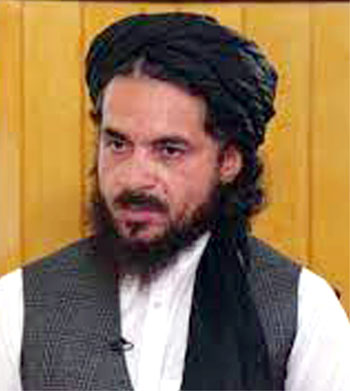Asadullah Haroon, one of two Afghans recently released from the US’s Guantanamo Bay, says he was imprisoned without charges.
In an interview with TOLOnews, Haroon said that he had been tortured many times during his 15 years at the prison and that his health was not good now.
“Ten years of my life were wasted. I graduated from the Faculty of Economics. Now I have forgotten everything. My identity, dignity and areputation is ruined, and I don’t know what my fault is,” he said.
Haroon, 41, was arrested in 2007 by US forces in eastern Nangarhar province, and taken to Guantanamo Bay.
He said US forces treated him in a bad manner and that the US lacked documents to prove his guilt.
During his 15 years in prison, he said, he wrote more than 900 letters to find a lawyer to defend himself.
“Guantanamo prison was a military camp. I had no legal rights, and I did not have a lawyer for ten years,” Haroon said. But what rights do prisoners have during their imprisonment?
“Under international law, all detainees must be treated fairly and humanely until their crime is proven, free from any discrimination based on religion, ethnicity, language, or gender,” said Javid Sangdel, a lawyer.
The Pentagon has identified Assadullah Haroon as the commander of Islamist militias and al-Qaeda couriers.
The Islamic Emirate said that Haroon was freed as a result of engagement between the US and Kabul, but they did not provide details.
Abdul Latif Nasir, 56, was repatriated to Morocco.
“I was born again on July 19. My birthday is no longer March 4. I was born yesterday on July 19,” Abdul Latif Nasir said in a statement shared with ABC News. “I have no words to describe my overwhelming sense of happiness and joy. It is like a miracle after 20 years to be home and celebrate Eid together with my family.”
On Tuesday, the legal charity Reprieve, which campaigned for his release and provided legal support, confirmed to ABC News that Nasser was reunited with his family in Morocco.
Nasir, whose case was profiled by ABC News in 2019, was first cleared for release from Guantanamo more than five years ago. He had been detained there for 19 years after he was captured in Afghanistan, alleged by the US government to be an active member of the Taliban and then to have trained with al-Qaeda.
Guantanamo set up to house foreign suspects following the Sept. 11, 2001, attacks on the United States, the prison came to symbolize the excesses of the US “war on terror” because of harsh interrogation methods critics said amounted to torture, Reuters said in the report.
While former President Donald Trump kept the prison open during his four years in the White House, Biden has vowed to close it, a promise White House press secretary Jen Psaki reiterated on Monday.
Nasir had been cleared for release in 2016 during the Obama administration before Trump took office. Most of the prisoners left at Guantanamo Bay have been held for nearly two decades without being charged or tried.
“The (Biden) administration is dedicated to following a deliberate and thorough process focused on responsibly reducing the detainee population of the Guantanamo facility while also safeguarding the security of the United States and its allies,” State Department spokesman Ned Price said in a statement.
Morocco’s general prosecutor said in a statement that Nasir would be investigated for suspected involvement in terrorist acts, and a police source said he had been taken into custody in Casablanca.
More than a dozen Moroccans have been held at Guantanamo Bay and those repatriated have faced investigation and trial. One, Ibrahim Benchekroun, was jailed for six years after being repatriated in 2005 and died in 2014 in Syria where he had traveled to join a militant group.
A senior US administration official, speaking on condition of anonymity, said that of the remaining detainees at the prison, 10 are already eli ible for transfer. —Tolonews










